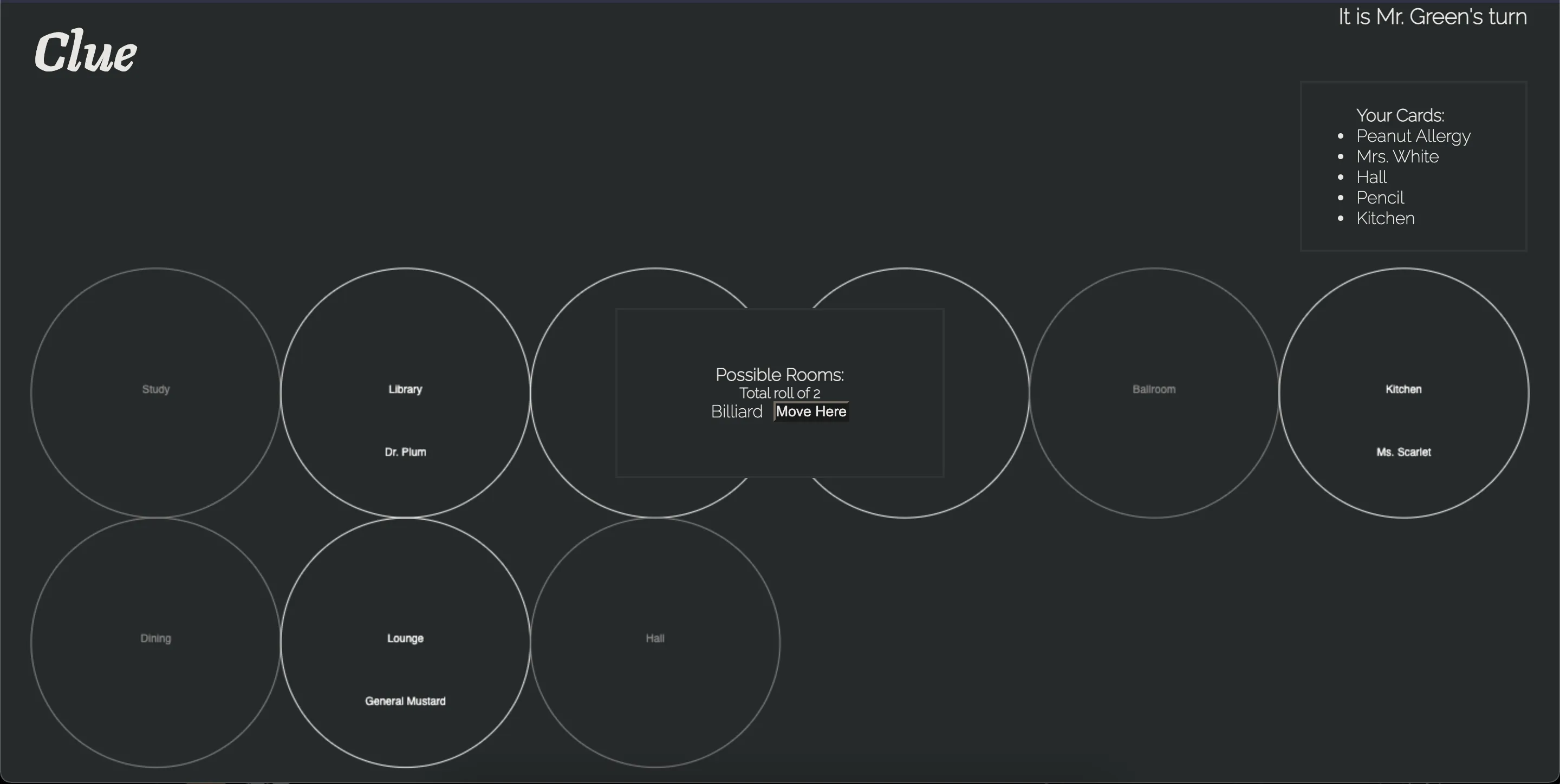Clue: Digital Board Game Implementation
This project explores the capabilities of modern web technologies in digital board game development, specifically focusing on creating an accessible, lightweight implementation of the classic game Clue. The development prioritized maintaining the original game’s strategic depth while leveraging digital enhancements to improve player experience.
Technical Approach
The implementation relies entirely on native web technologies, demonstrating that complex game logic and rich visual interfaces can be achieved without external dependencies. This approach yielded several advantages:
The HTML Canvas API serves as the primary rendering engine, handling all visual elements from the game board to character movements. This choice provided precise control over the visual implementation while maintaining excellent performance across different devices and browsers.
State management and game logic use vanilla JavaScript, structured to maintain clear separation between the game’s core mechanics and its visual representation. This architecture ensures the codebase remains maintainable while facilitating future enhancements.

Implementation Details
The development focused on several key technical areas:
Rendering Architecture
The rendering system implements a layered approach within Canvas, separating static elements like the game board from dynamic elements such as player tokens and UI overlays. This design choice significantly improved performance by minimizing unnecessary redraws while maintaining smooth animations.
Game State Management
The game state system tracks multiple aspects simultaneously:
- Player positions and movements
- Card distributions and player knowledge
- Turn progression and action validity
- Historical moves for reference
Input Handling
The implementation captures both mouse and touch inputs, translating screen coordinates into game actions through a sophisticated event handling system. This ensures consistent behavior across different input methods and screen sizes.
Technical Challenges
Several interesting technical challenges emerged during development:
Board Navigation
Implementing intuitive navigation required careful consideration of path-finding algorithms and movement validation. The solution uses a grid-based system with pre-calculated valid paths, balancing gameplay accuracy with performance.
State Visualization
Communicating game state effectively while maintaining the mystery central to Clue’s gameplay presented unique challenges. The interface provides clear feedback about available actions and game progression without revealing hidden information.
Digital Enhancements
While preserving the core gameplay, the digital implementation introduces several thoughtful improvements:
Automated Features
The system handles various bookkeeping tasks automatically:
- Valid move calculation and visualization
- Turn order management
- Card dealing and organization
- Game history tracking
Interface Improvements
Modern interface design principles enhance the player experience:
- Clear visualization of possible actions
- Intuitive drag-and-drop interaction
- Visual feedback for game events
- Automated note-taking assistance
Development Insights
This project demonstrates the viability of using native web technologies for complex game implementations. The HTML Canvas API proved remarkably capable, handling both the technical requirements and aesthetic needs of the game without requiring external libraries or frameworks.
The focus on vanilla JavaScript and Canvas resulted in a lightweight application that loads quickly and runs smoothly across different platforms. This approach also provided valuable insights into performance optimization and state management techniques in pure JavaScript environments.
The project continues to serve as a reference for efficient game development using web standards, showing that sophisticated applications can be built without relying on heavy frameworks or complex build systems.